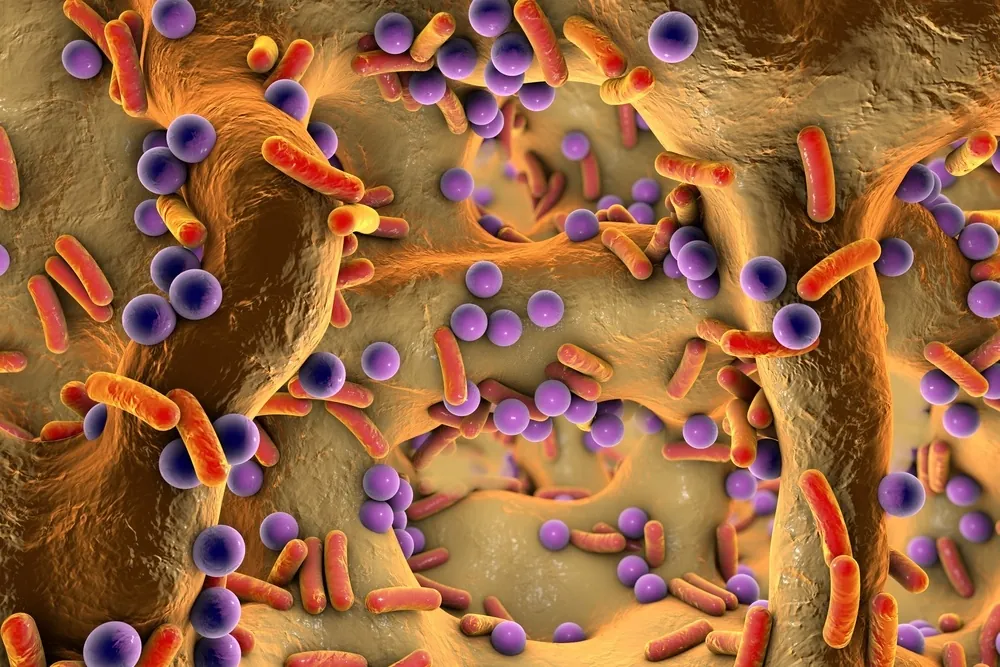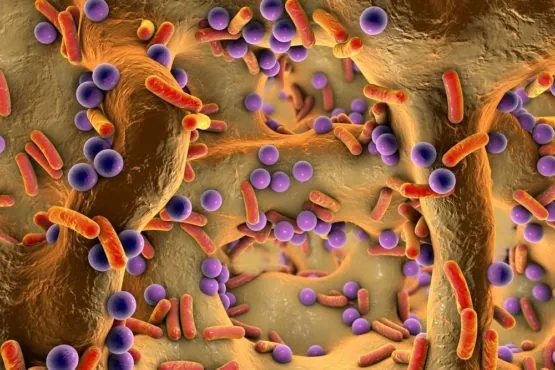Somewhat serendipitously, Salk Institute researchers discovered that depleting the microbiomes of mice causes the animals to have lower levels of blood glucose as well as improved insulin sensitivity [1].
Abstract
Antibiotic-induced microbiome depletion (AIMD) has been used frequently to study the role of the gut microbiome in pathological conditions. However, unlike germ-free mice, the effects of AIMD on host metabolism remain incompletely understood. Here we show the effects of AIMD to elucidate its effects on gut homeostasis, luminal signaling, and metabolism. We demonstrate that AIMD, which decreases luminal Firmicutes and Bacteroidetes species, decreases baseline serum glucose levels, reduces glucose surge in a tolerance test, and improves insulin sensitivity without altering adiposity.
These changes occur in the setting of decreased luminal short-chain fatty acids (SCFAs), especially butyrate, and the secondary bile acid pool, which affects whole-body bile acid metabolism. In mice, AIMD alters cecal gene expression and gut glucagon-like peptide 1 signaling. Extensive tissue remodeling and decreased availability of SCFAs shift colonocyte metabolism toward glucose utilization. We suggest that AIMD alters glucose homeostasis by potentially shifting colonocyte energy utilization from SCFAs to glucose.
The human condo
Microbiomes are communities of microorganisms living in and on plants and animals; they may be in symbiotic relationships with their hosts, but they may be pathogenic as well. In humans, estimates about the ratio of microorganisms to human cells vary, with older estimates being as high as 10 to 1 and more recent ones as low as 1 to 1. These organisms inhabit different parts of the body, and, as they co-evolved with us, many have several crucial functions. Gut microbiota in particular are important for extracting energy from food, and they are thought to have a role in aging as well.
An accidental discovery
The original scope of the Salk study wasn’t related to glucose or insulin sensitivity; rather, the researchers had set out to discover what happens to the circadian rhythm of murine metabolism when the microbiome is depleted. Normally, to carry out an experiment like this, mice are raised in a germ-free environment, but as Salk researchers didn’t have access to such mice, they depleted the gut microbiota of lab mice using antibiotics.
The researchers made use of four different antibiotics, which predictably resulted in a severe depletion of the animals’ microbiomes. What came out as much more surprising was that the mice became able to clear glucose from their blood at a much faster rate than normal and had higher insulin sensitivity. As the researchers found out, the size of the mice’s colons had significantly increased as a consequence of the depletion, and the colon cells were absorbing a high amount of their blood glucose.
It appears that the depletion of the gut microbiome produced changes in the liver function of the mice, including the bile acids secreted by the liver. The increased insulin sensitivity and decreased blood glucose levels happened without any changes to the body fat composition of the animals or to their diet. These benefits are basically what type 2 diabetes patients aim for, but the researchers certainly don’t suggest that such patients should kill off their gut microbiomes in order to reverse the disease.
However, the discovery that microbiota can be manipulated in order to increase insulin sensitivity is intriguing; Salk researchers think that it might be possible to find out what components of the microbiome are responsible for this change and use them to induce better glucose regulation in humans.
Literature
[1] Zarrinpar, A., Chaix, A., Xu, Z. Z., Chang, M. W., Marotz, C. A., Saghatelian, A., … & Panda, S. (2018). Antibiotic-induced microbiome depletion alters metabolic homeostasis by affecting gut signaling and colonic metabolism. Nature Communications, 9(1), 2872.



